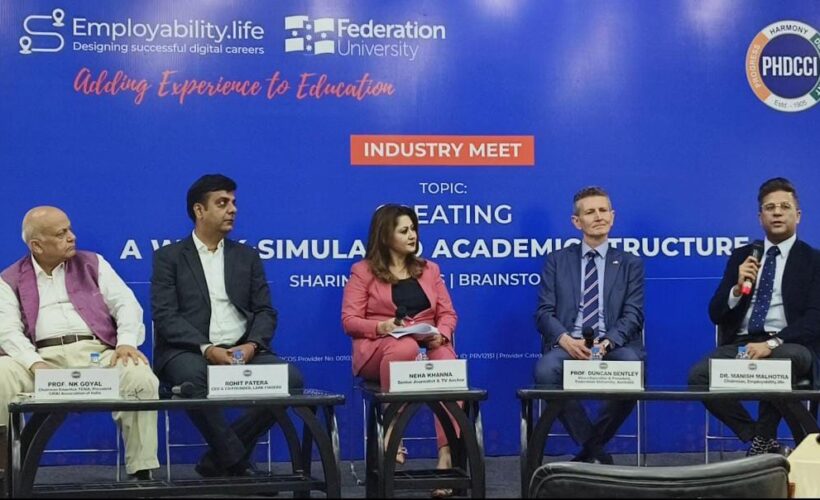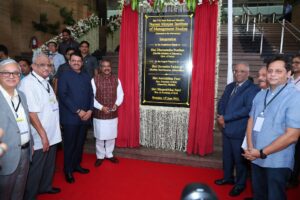
The PHDCCI, in collaboration with Employability.life and Federation University, Australia, successfully hosted a high-level industry meet on 18th September 2024 at PHD House, New Delhi. The meet focused on the pivotal role the industry can play in shaping academic structures to create work-simulated learning environments, especially as technological advancements rapidly reshape the skills landscape.
In his keynote address, Prof. Duncan Bentley, Vice-Chancellor and President, Federation University, Australia, underscored the urgency for universities to adapt to fast-changing employment trends. He highlighted the challenge of aligning degree programs with the pace of technological evolution, especially in fields like artificial intelligence (AI) and machine learning. He apprised that we must ensure our curricula remain agile, enabling students to acquire the skills required by the industry today and in the future. Prof. Bentley emphasized the importance of swift integration of emerging technologies like AI into academic programs to avoid becoming outdated.
Dr. Manish Malhotra, Chairman, Employability.life, stressed the diminishing importance of traditional content-focused education. He pointed out the need for experiential learning through simulation to bridge the gap between academia and real-world industry challenges. He emphasized that students must be able to solve real-life problems in a simulated environment, particularly in digital economy sectors like AI and cyber security.
In his address, Prof. N K Goyal, Chairman Emeritus TEMA, President CMAI Association of India, raised thought-provoking questions about the readiness of both academia and industry to predict future skill demands. He noted that rapid technological advancements, particularly with AI, challenge both sectors to stay ahead of the curve.
Prof. Bibhu Biswal, Professor – Cluster Innovation Centre, University of Delhi, highlighted the need to focus on key skills such as analytical thinking and creativity when designing curriculum frameworks, while Dr. Vishal Gandhi, Founder & CEO, BIORx Venture Advisors Pvt. Ltd. and Chief Ideator, Indian Healthcare Angels, called for greater collaboration between academia and industry. He noted that public universities often lag behind private institutions in meeting the fast-paced needs of industry and suggested that models like the ‘Professor of Practice’ could provide much-needed expertise to bridge the gap.
Dr. Jatinder Singh, Deputy Secretary General, PHDCCI, summed up the deliberations by stressing the micro-skills training over traditional long-term degree programs and announced that PHDCCI, in partnership with Employability.life, will prepare a whitepaper based on the discussions. This document will be presented to the concerned departments to guide future policy reforms aimed at strengthening the link between academia and industry.
The meet concluded with a commitment to continued dialogue and collaboration, with PHDCCI playing a central role in facilitating this critical partnership between industry and academia.



